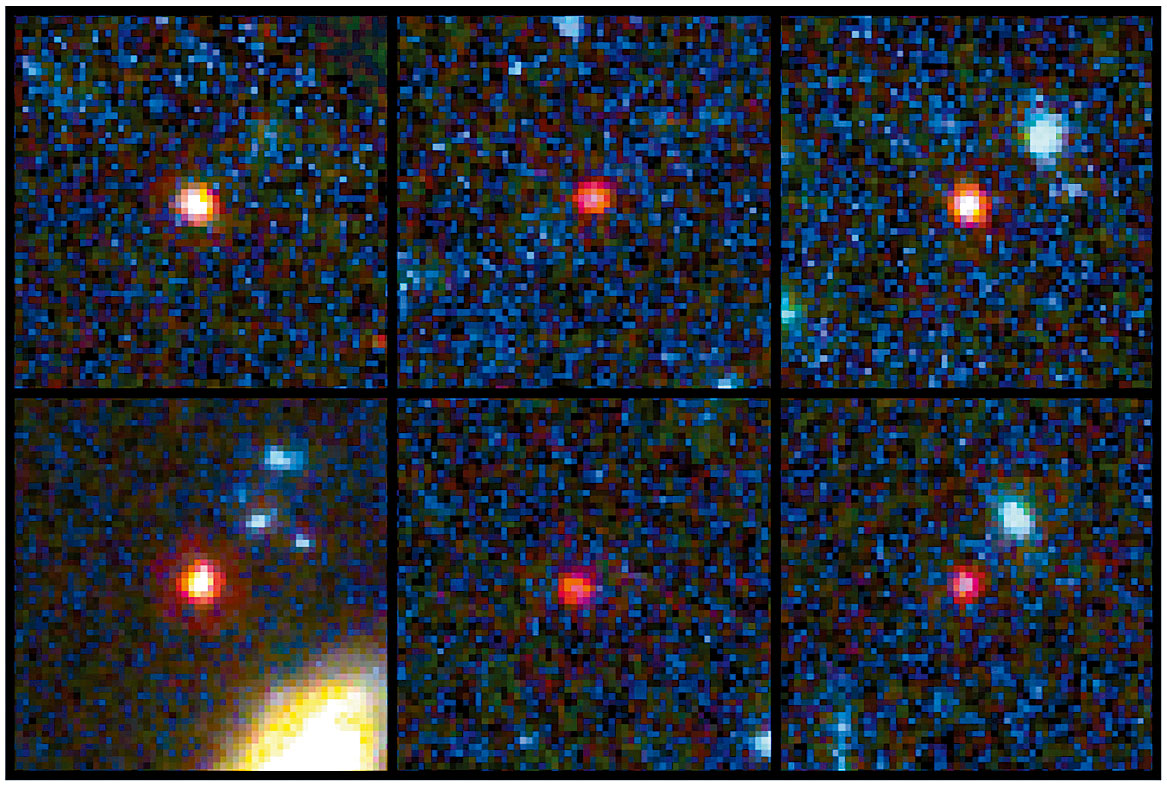Webb telescope photographed 6 galaxies to subvert the theory of the origin of the universe
Update time: 03:00 2023-02-24
Release time: 03:00 2023-02-24
(Reported by Sing Tao Daily) American astronomers used the Webb Space Telescope to photograph 6 huge galaxies that appeared 500 million to 700 million years ago after the Big Bang, which were about the size of the Milky Way. Astronomers were surprised because the universe at that time was only the current age In the extremely early era of 3%, it is theoretically impossible for such a huge galaxy to exist, and the speed of its formation has subverted human cognition of the universe. The latest research has been published in the journal Nature. The existence of these massive galaxies could upend current cosmological theories, and astronomers call them “universe breakers.” Current theories suggest that galaxies start as small clouds of stars and dust that grow over time. But the galaxies discovered this time are so huge that they contradict 99% of the models representing galaxies in the early universe, which means that scientists need to rethink how galaxies form and evolve.
Measurement results need to be followed up
Erica Nelson, an assistant professor of astrophysics at the University of Colorado Boulder and a member of the research team, pointed out that these galaxies should not have had time to form at the time, because these galaxies are so huge.
These measurements still need further observation and follow-up to confirm their mass and location. Nielsen pointed out that even if only one of the galaxies actually exists, it completely overturns the existing theory of the origin of galaxies.
“These objects are more massive than anyone expected,” said study co-author Joel Leja, an assistant professor of astronomy and astrophysics at Penn State. At this point in time, only tiny, young, infant galaxies can be found. But we are finding galaxies as mature as our own in what was previously understood to be the “dawn of the universe.” The mass, appears to be 10 billion to 100 billion times that of our sun.
